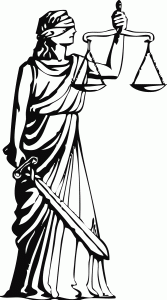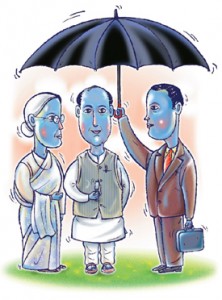In this blog post, Sakshi Jain, student, Amity University, Lucknow Campus, writes about the provisions for elders under Indian laws. It includes the personal as well as secular laws of the country that form the aegis of Law for elders.
Provisions for Elders under Indian Law
All the world’s a stage, and all the men and women merely players[1]. Ageing is a part of life and in a natural process. Ageing makes the body of a person weak and reliable to the person. Elderly is an inevitable process and no one has control over it. The senior citizens of the country are the most precious sector of our country and need to be properly treated. They are very experienced and knowledgeable people and being elderly makes them non-functional, so proper laws are been declared for them so that they can live their last year of life peacefully.
The population of the elderly persons has been increasing over the years. As per the UNESCO estimates, the number of the aged (60+) was likely to be around 599 million in 2005. The figure will double by 2025. By 2025, the world will have more elderly than young people and cross the two billion mark by 2050. In India, the population of elderly persons has increased from nearly 2 crores in 1951 to 7.2 crores in 2001. In other words about 8% of the total population is above 60 years. The figure will cross the 8% mark by 2025. A senior citizen is an Indian citizen of 60 years of age or all parents having children above 18 years of age.[2]

Rights of the Elderly in India
There are various rights given to the senior citizens of our country. They include:
Constitutional protection
Provisions are mentioned in the Constitution of India for senior citizens of India. Directive principles of state policy talk about these provisions. Article 41 and article 46 are the constitutional provisions for them. Although directive principles are not enforceable under the law, but it creates a positive obligation towards the state while making any law. Therefore, while making any law, the state should consider the directive principles mentioned for the elderly people.
Article 41
 Right to work, to education and to public assistance in certain cases. The State shall, within the limits of its economic capacity and development, make effective provision for securing the right to work, to education and to public assistance in cases of unemployment, old age, sickness and disablement, and in other cases of undeserved want.
Right to work, to education and to public assistance in certain cases. The State shall, within the limits of its economic capacity and development, make effective provision for securing the right to work, to education and to public assistance in cases of unemployment, old age, sickness and disablement, and in other cases of undeserved want.
Every citizen has the right to work over a certain period of time. They cannot be retired from doing their work whether in the private or the public sphere.
Article 41 provides that it is the right of the citizen of India to right to work, to education and to public assistance within the capacity of the state.
After the Forty-first amendment, the age for retirement of a chairman and its members under public service commission’s were raised from 60 years to 62 years. This was done by amending Article 316(2) of the Constitution which provides for the appointment and term of office of members. But it cannot exceed from the said age because of the fact that due to rising in the age of the existing person will not allow the young ones to showcase their work and talent. Therefore, elders are given the right to work under the dependency of the state to provide them so.
Legal protections
Taking care of elder parents is more or less a legal duty as well as a moral obligation. Personal laws of every religion have made it a legal and moral obligation to the children to take care of their parents.
Hindu Laws
 Under the Hindu personal laws, every Hindu has the obligation to take care of their aged parents who are not able to maintain and take care of themselves. Earlier it was the legal obligation of the son to maintain his aged parents but now, it is the right of a daughter to maintain her parents who are not able to maintain out of their own earnings or property. This is the first act related to the personal law which imposes an obligation on children to maintain their parents.
Under the Hindu personal laws, every Hindu has the obligation to take care of their aged parents who are not able to maintain and take care of themselves. Earlier it was the legal obligation of the son to maintain his aged parents but now, it is the right of a daughter to maintain her parents who are not able to maintain out of their own earnings or property. This is the first act related to the personal law which imposes an obligation on children to maintain their parents.
Section 20 of the Hindu Adoption and Maintenance Act, 1956, makes it an obligatory provision to maintain an aged parent.
Maintenance of children and aged parents —
(1) Subject to the provisions of this section a Hindu is bound, during his or her lifetime, to maintain his or her legitimate or illegitimate children and his or her aged or infirm parents.
(2) A legitimate or illegitimate child may claim maintenance from his or her father or mother so long as the child is a minor.
(3) The obligation of a person to maintain his or her aged or infirm parent or a daughter who is unmarried extends in so far as the parent or the unmarried daughter, as the case may be, is unable to maintain himself or herself out of his or her own earnings or other property. Explanation. — In this section “parent” includes a childless step-mother[3]
Hence, every elder parent has a right to be maintained by his or her son or daughter provided that they are unable to maintain themselves out of their own earning or property.
Muslim Law
 Muslim law makes it obligatory for a man to provide maintenance for his father, mother, grandfather and grandmother.
Muslim law makes it obligatory for a man to provide maintenance for his father, mother, grandfather and grandmother.
According to Tyabji, both the son and daughter are under the obligation to provide maintenance to their aged parent. Maintenance is due to a relationship within a prohibited degree of relationship.
According to Mulla, the children are bound to maintain their parents if the latter is able to earn for themselves.
Under the Shia law, both the parents, i.e., parents, and grandparents are treated equally and are given an equal quantum of maintenance but the parents are given more preference towards the grandparents.
Christian and Parsi Law
 There is no personal law for Christian and Parsi for providing maintenance to the aged parents. If the parents want to seek maintenance from their children, they can apply through the Criminal Procedure Code to seek maintenance.
There is no personal law for Christian and Parsi for providing maintenance to the aged parents. If the parents want to seek maintenance from their children, they can apply through the Criminal Procedure Code to seek maintenance.
Under Section 125 of Criminal Procedure Code, the elder parents can claim maintenance from their children.
The Criminal Procedure Code is a secular law which is applicable to the entire region. This is not for a particular sect and is applicable to every citizen of the country. To claim maintenance under this law, it is necessary to prove that the parents are neglected and do not have the sufficient means of income to maintain themselves.
Section 125 of the Criminal Procedure Code makes it obligatory for sons and daughters, including a married daughter, to maintain their parents.
The Maintenance and Welfare of Parents and Senior Citizens Bill, 2007
 The Maintenance and Welfare of Parents and Senior Citizens Bill, 2007, seeks to make it legal for the children or heirs to maintain their parents or senior citizens of the family. The bill defines children as sons, daughters, grandsons and granddaughters. Parents are the biological, adoptive or step-parents.
The Maintenance and Welfare of Parents and Senior Citizens Bill, 2007, seeks to make it legal for the children or heirs to maintain their parents or senior citizens of the family. The bill defines children as sons, daughters, grandsons and granddaughters. Parents are the biological, adoptive or step-parents.
This bill also permits State Governments to establish old age homes with the minimum capacity of 150 elders for the neglected elderly people in every district. The State Government may establish a maintenance tribunal in every district under which every old age citizen can go and claim their right of maintenance seeking monthly allowance from their children or heirs. The appellate tribunal may also be established in every district.
The bill makes Rs 10,000 which shall not exceed as a monthly allowance to the elder parent from their children or heirs and if they do not pay the allowance shall be liable for punishment of 3 months of imprisonment or Rs 5000 or both.
The bill provides obligation to maintain elder/aged parents upon:
- Children
- Heirs
- Children residing abroad
Conclusion
The goal of all these provisions is to provide safety and security to the elderly citizens of the country. They should be financially assisted so that they live with dignity. Many children neglect their parents when they are turning old and moving towards the very crucial years of their life where they need support, help, care, and love. Many cases have been noticed where the parents are left alone or left in the old age homes by their children. The people who once took care of every single need, whims and fancies of their children have now been left alone in this world by their children.
While seeing to all these cases, the Government of India took a stand on behalf of the elders and made provisions in the personal as well as secular laws. These laws made it mandatory for the children to maintain their parents. Both the son and daughter are under this obligation. Earlier, it was not a legal obligation but a moral one. But due to the various circumstance like increasing old age homes and all, the government made various laws to protect the elder section of the country.
The Parents and Senior Citizens Bill was also drafted by the parliament to ensure the rights of the elder citizens towards their children and heir. Punishments are also mentioned under the same bill that disobeys the provisions of the bill. But the worst part is, there is no solid and strong law for the elders under which their rights cannot be curtailed. Therefore, the government of India should take up a strong initiative to make laws for the elder citizens of the country.
LawSikho has created a telegram group for exchanging legal knowledge, referrals and various opportunities. You can click on this link and join:
https://t.me/joinchat/J_
[1] As You Like It, Act II, Scene VII [All the world’s a stage]; William Shakespeare, 1564 – 1616
[2] http://www.legalserviceindia.com/article/l170-Rights-Of-Senior-Citizen.html
[3] . https://indiankanoon.org/doc/17630/
 Serato DJ Crack 2025Serato DJ PRO Crack
Serato DJ Crack 2025Serato DJ PRO Crack










 Allow notifications
Allow notifications



A real and very honest article i ever found on the internet or on any website. this ones really helpful for me. i am currently Volunteer for one organisation who is in the elderly peoples empowerment so its a very good and very effective article for our organisation. thanks a lot for sharing such a good article with quality information.
Why publish this old info? Maintenance and Welfare of Parents and Senior Citizens Act 2007 is nine years old and the article talks about the Bill — now in 2016.